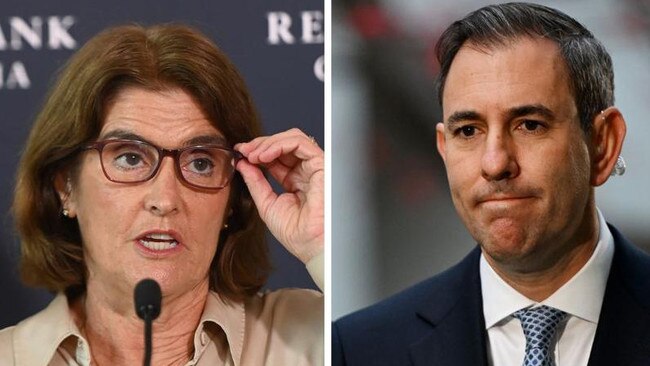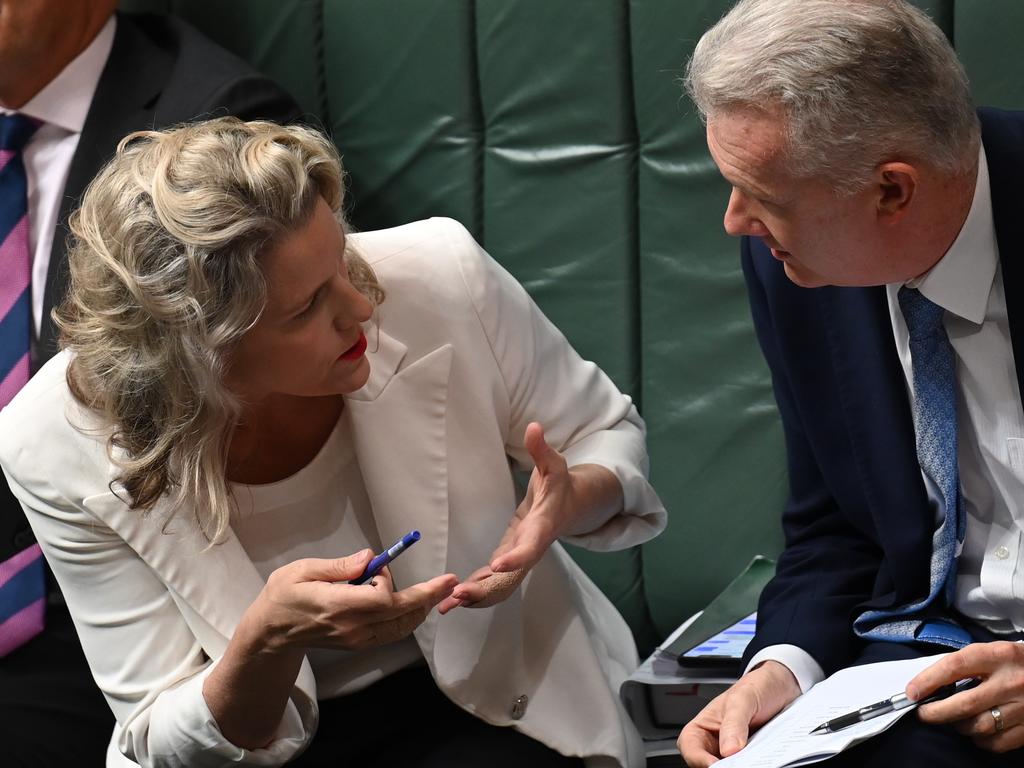
The consensus is that the Treasurer and mortgagees are safe for now.
While headline inflation was higher, it wasn’t of an order to panic the RBA just yet.
Yet if Michele Bullock’s muscular commentary to CEOs last week at a roundtable event is an indication, there is still a risk that the central bank could move.
The RBA governor made it clear that the level of state and federal government debt and spending was a primary concern of the bank and that she was determined to do whatever it took to get the job done. The question now is how quickly Bullock wants to finish the job.
Again, most economists expect that the bank will wait. What this means is that Anthony Albanese and Chalmers are unlikely to be getting any rate cuts this side of an election.
There is no good news in these numbers other than they aren’t worse.
The opposition will seize on the primary take-out of the latest numbers and the fact they represent the first annual increase in inflation since December 2022.
Ironically, the headline rate that Chalmers is hoping to influence through energy subsidies was up, while the underlying rate which the RBA is more interested in has come down marginally.
There is a broad assumption that the headline numbers will come down once the energy subsidies work their way through the system, giving Chalmers a likely political win by the end of the year.
The inflation data, however, only illuminates further the secondary political problem Albanese has. The rising housing costs that are being fuelled by a lack of supply are unlikely to subside any time soon with little likelihood that the government will be on track before the election to claim it will be able to meet its own housing supply targets.
Everyone will have an opinion about what the RBA should and will do next week. The assumption being that if rates remain on hold, then they are likely to remain on hold at high levels for even longer.
In the meantime, the overall picture of a high inflation environment continues to add to cost-of-living pressures and therefore continues to present political opportunity for the Coalition.
The question doing the rounds is whether a rate rise or not will influence the timing of an election?
The theory is that a rate rise next week would kill off any ambition to an early poll, while a gloomier outlook for next year might prompt the government to get ahead of more bad news.
Peter Dutton has convinced himself that Albanese is eyeing an early election, and is madly trying to convince everybody else.
This is largely an issue of internal discipline. Dutton needs his frontbench firing and the state divisions to get running on preselections. And nothing is better to motivate the troops than the threat of an early election.
Dutton’s problem is that there is no evidence yet that this is working. Liberal insiders have expressed deep frustration at the level of energy coming from the opposition frontbench considering the endless rounds of ammunition Labor keeps gifting them.
For Albanese, the only set of numbers that really matter won’t necessarily be inflation numbers, or a rate rise itself, but the numbers contained in Labor’s private polling.
Assuming they are not inconsistent with some of the published data, it’s hard to see what would encourage him to go early, if the premise remains that a leader goes to an early election only when they are assured that they can win.
His colleagues won’t thank him for tipping them into minority government nine months earlier than needed.
And an already cranky electorate may be more likely to see through the cynicism of any political case Albanese would need to mount to justify one.





Jim Chalmers may be sweating less but it will still be an anxious wait for the Treasurer until next Tuesday when the central bank will decide whether it wants to go hard and hit inflation on the head or prolong the pain for borrowers.